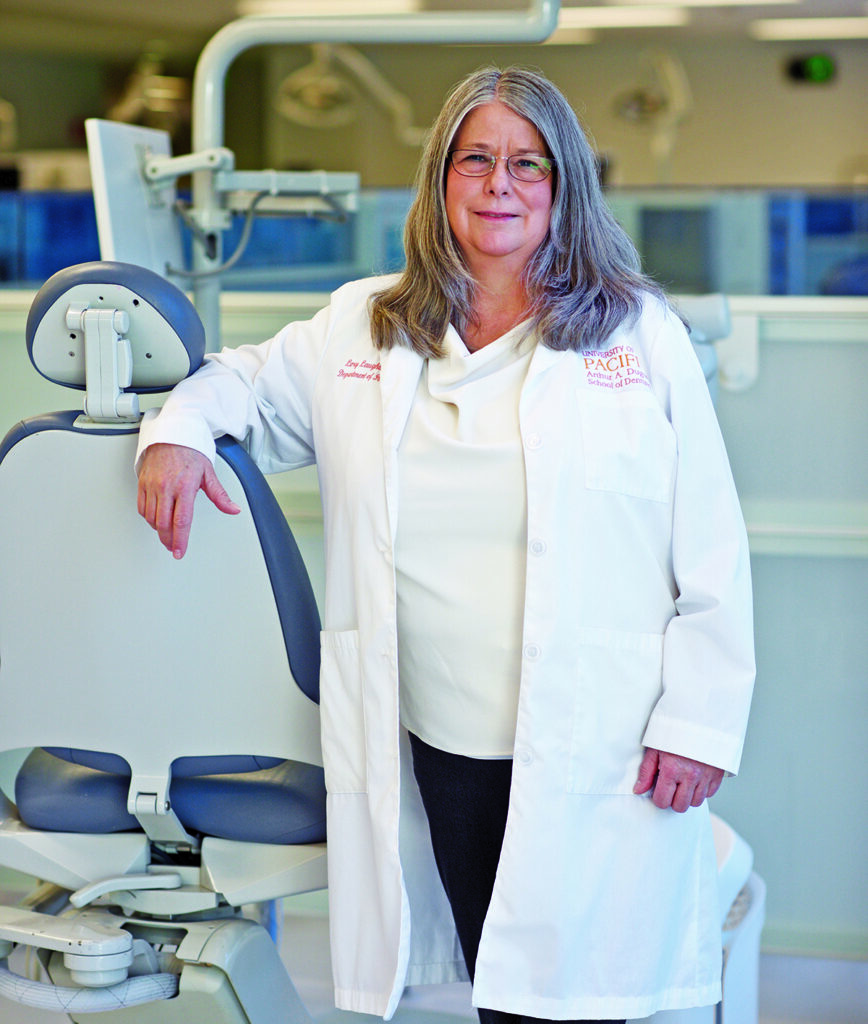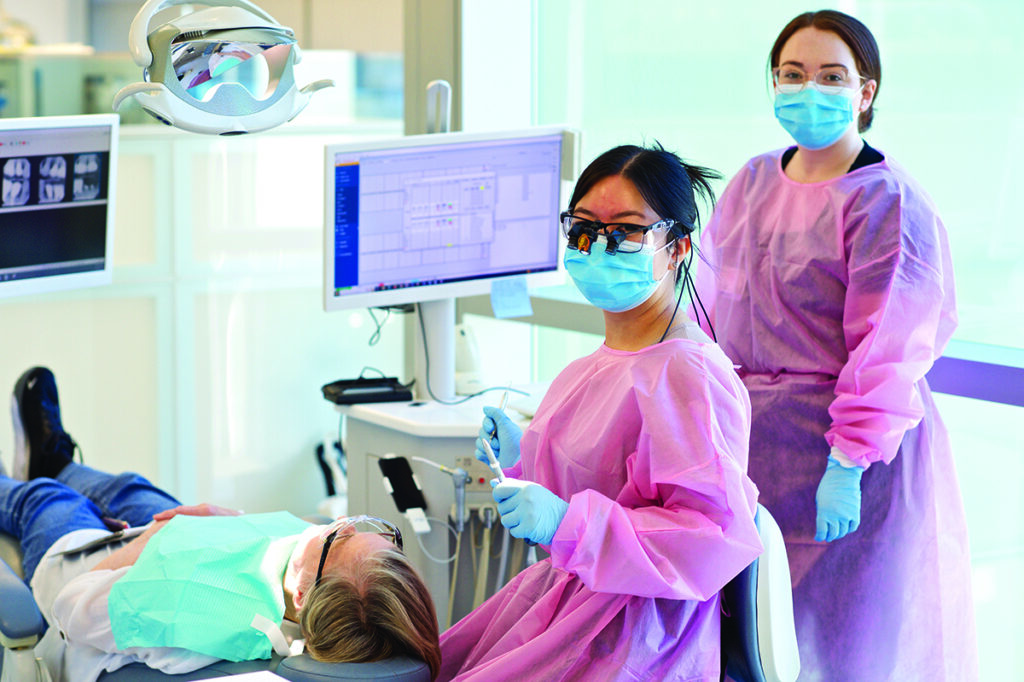Programs for Allied Dental Professionals Shine at the Dugoni School
By Kirsten Mickelwait
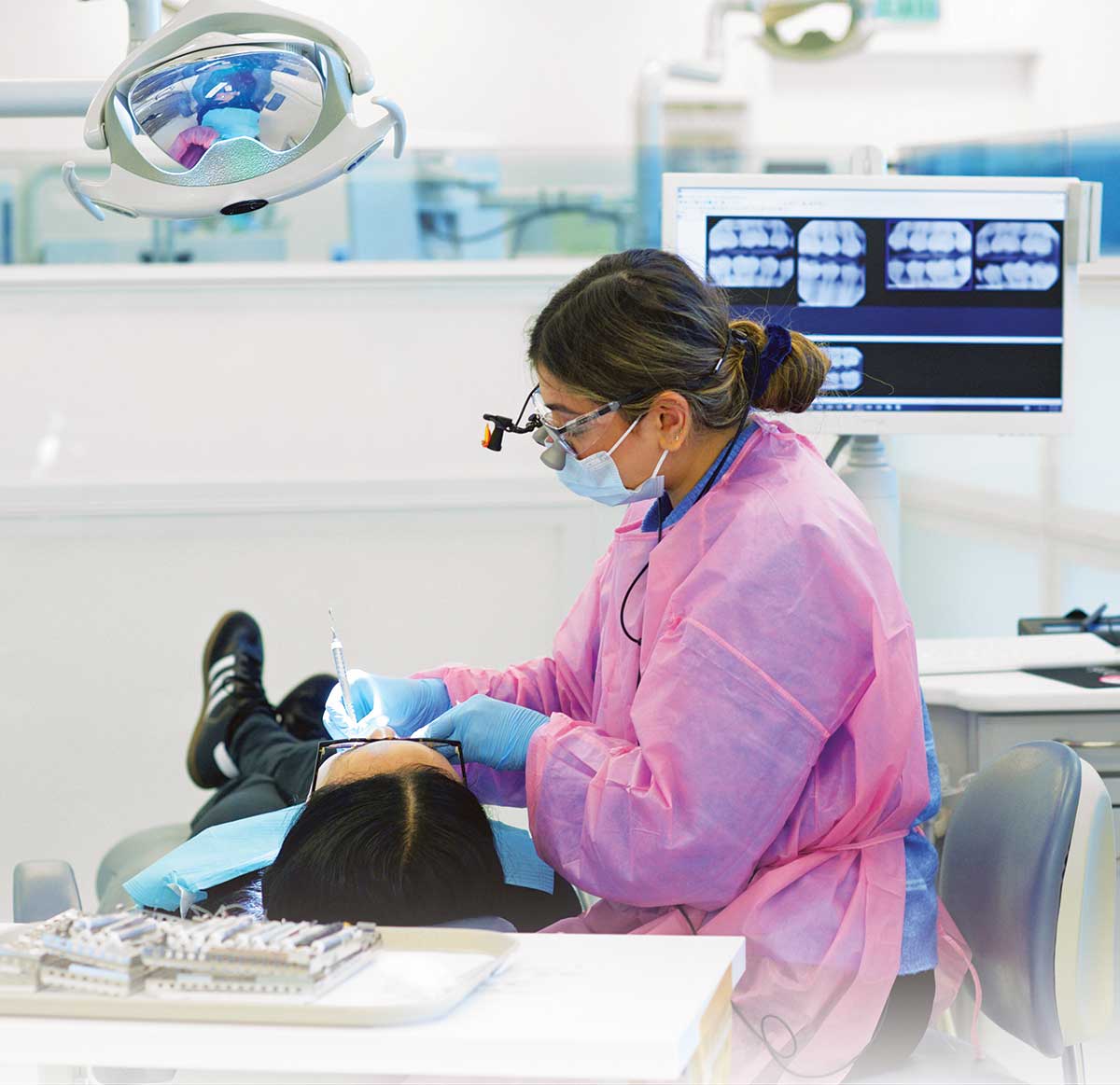
There are several paths to a career in the dental profession, and earning a DDS degree is just one of them. Although many people are aware of the Arthur A. Dugoni School of Dentistry’s excellent programs for aspiring dentists and specialists, not everyone knows about the baccalaureate Dental Hygiene program and two other offerings from the school’s Division of Continuing Dental Education (CDE) for allied professionals to enhance their careers. These programs can provide opportunities for its graduates outside of clinical practice—and such access to continuing education ensures that the Dugoni School of Dentistry is feeding the pipeline of skill, experience and service to raise the caliber of oral health care across the board, says Kelly Fong, director of the Division of CDE. “It also produces competent providers for patient care in underserved communities.”
An Indispensable Role: The Dental Hygiene Program
According to the U.S. Department of Labor, dental hygiene is one of the 30 fastest-growing occupations nationwide, and is it any wonder? Not only is the role indispensable to any practice—about 70% of dental hygienists find work in dental offices—but it’s also applicable to many other careers, including management, research, public health, administration and teaching.
The Dugoni School of Dentistry’s 16-month Dental Hygiene (DH) program is one of only three such programs in California that offers a bachelor’s degree, and it’s the only school to require admission interviews. In classes of 20 to 22 hygiene students, the unique rotation experiences include collaborations with orthodontic residents, learning about teledentistry care and training within the school’s Hutto Patterson Pediatric Dentistry Clinic. The integrated clinical model allows for student interaction and co-therapy experiences with not only dental faculty but with other dental students from around the world.
Dental hygiene faculty members are active in the California Dental Hygienists’ Association (CDHA), from its board of trustees and committees to chairing the CDHA Foundation—a nonprofit that serves as a grant administrator for hygienists and local components focused on community-based programs to promote public oral health care.
Program Director Lory Laughter, RDH, MS, is particularly proud of the DH program’s work to bring alternative pathways to dental hygiene education. “We’re investigating a way to offer dental hygiene education in rural and underserved areas,” she says. “Moving to San Francisco to study can be costly; by offering our program in more remote areas we can also positively impact access to care for a greater population. And those who can be educated where they already live are more likely to remain in those more remote areas.”
Laughter is also pleased that so many dental hygiene graduates have returned to the Dugoni School of Dentistry to become faculty members—currently, four of the school’s DH instructors are alumni. “I’m proud that they hold the program in such esteem that they choose to come back to educate future graduates,” she says.
“As a recent graduate, I am forever grateful for the dental education I received at the Dugoni School,” says Bella Reynolds ’23 DH. “I work for an alumnus in the Bay Area, where I now call my new dental home. The Dental Hygiene program has truly given me the tools for success in this profession. Each day, I look forward to treating every patient to the best of my abilities and in the best ways in which I was taught!”
Community Outreach: Registered Dental Hygienist in Alternative Practice
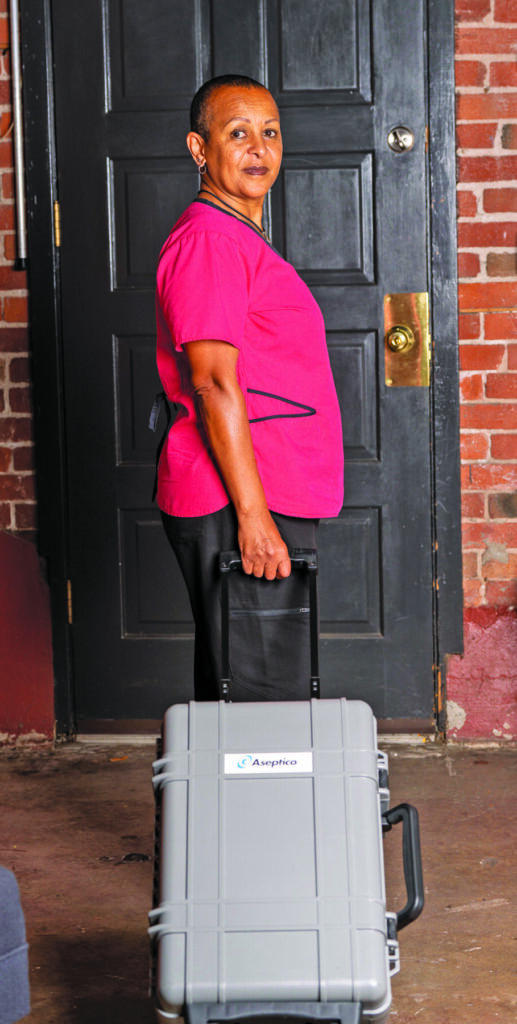
Nani Bezuayehu ’16 RDHAP, a presenter in the current program, witht her mobile hygiene equipment 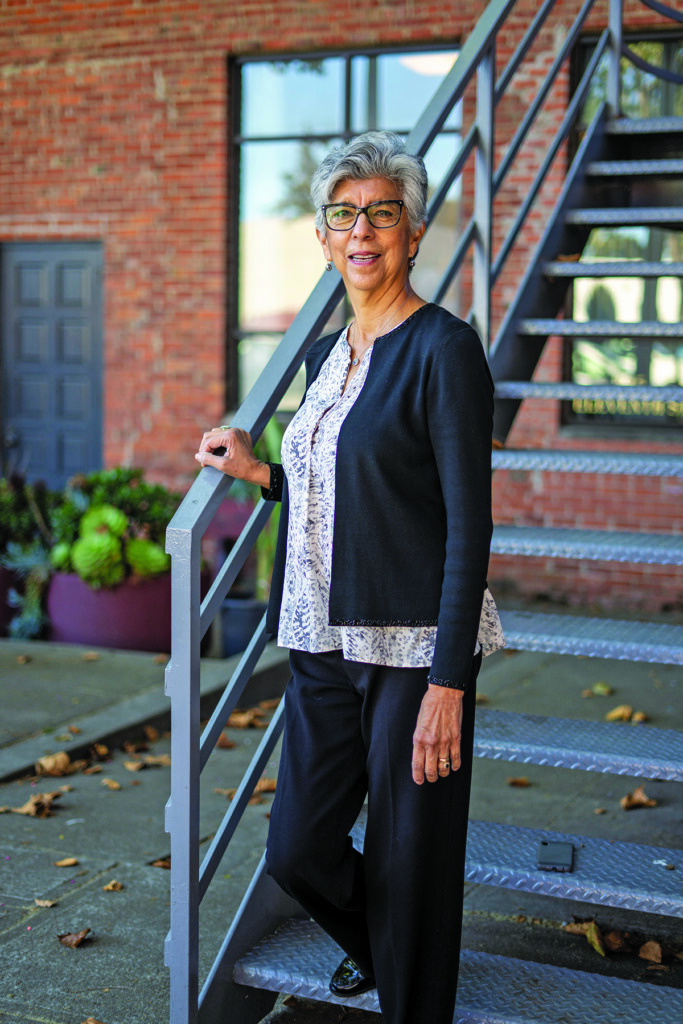
Program Director Elena Fraancisco ’05 RDHAP 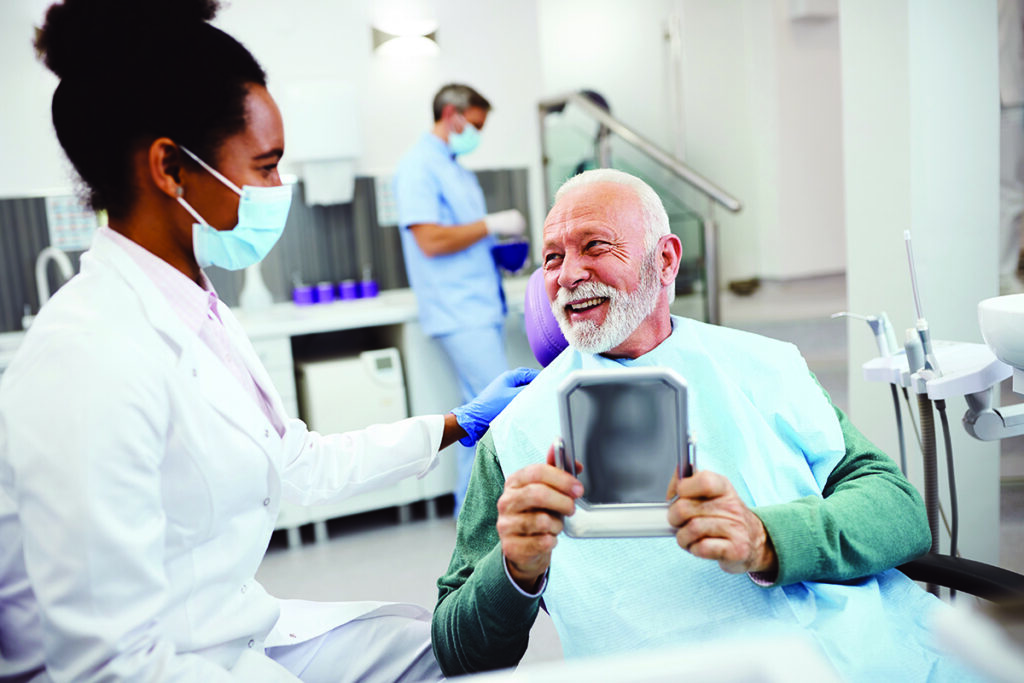
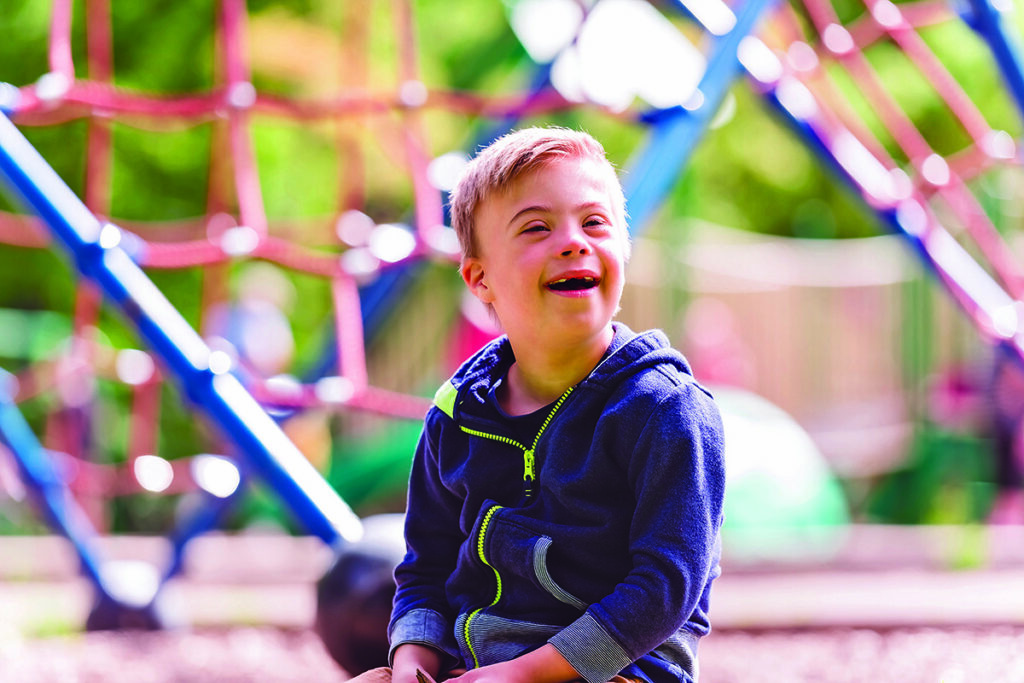
Offered twice a year, the Registered Dental Hygienist in Alternative Practice (RDHAP) virtual program trains certified dental hygienists and expands their skills to treat patients in underserved communities, as well as those with complex physical, medical or psychological needs. The first in-person RDHAP program began at West Los Angeles College in 2003, but the first-ever online program was launched by the Dugoni School of Dentistry in 2004. Elena Francisco ’05 RDHAP, a former Pacific dental hygiene assistant professor and RDHAP graduate, is the program’s current director.
Most students enroll in the program to become RDHAPs and start their own private practices, Francisco says. Others take the course to increase their comfort level working with the type of patients the RDHAP can provide care for, including the elderly, disabled, homebound and facility-bound individuals.
In classes of 20 to 26 students, the online curriculum includes interactive webinars and modules. Since the webinars are live, students can meet and engage with their instructors and peers, and because the coursework is virtual, it’s accessible to professionals in both urban and rural environments. Topics include dental hygiene practice and theory; treatment of medically complex patients, geriatric patients and children with and without special needs; oral pathology; pharmacology; information management; medical and dental emergencies; and business administration.
“We ensure our students can look critically at the laws regarding RDHAP practice, better preparing them to work within the scope of practice.”
Although a similar program is offered by three other schools across the state, several factors set the Dugoni School’s program apart, according to Francisco. First, it’s provided by an accredited university and top-ranked dental school where students can earn 150 hours of continuing education credit. The program is backed by a dedicated CDE team that gives continued student support to ensure their success. Above all, it’s taught by practicing RDHAPs who have been “in the trenches” themselves and it features supportive, practicing dentists as presenters.
“Practicing RDHAPs give the students a realistic perspective on how their practice can increase access to care,” Francisco says. “They shine a light on the advantages and pitfalls of private practice and business ownership. We ensure our students can look critically at the laws regarding RDHAP practice, better preparing them to work within the scope of practice.”
It takes a special kind of person to become an RDHAP, Fong says. She cites one Dugoni School of Dentistry RDHAP graduate who chose to provide oral health care to patients now needing palliative care—a relationship that’s not just about hygiene but about compassion and dignity. “She’ll have a three-hour appointment with a patient, and sometimes she’ll just sit bedside and talk with them,” Fong says. “It’s very rewarding for both the patient and for the RDHAP.”
Deepening Skills: Registered Dental Assistant in Extended Functions Program
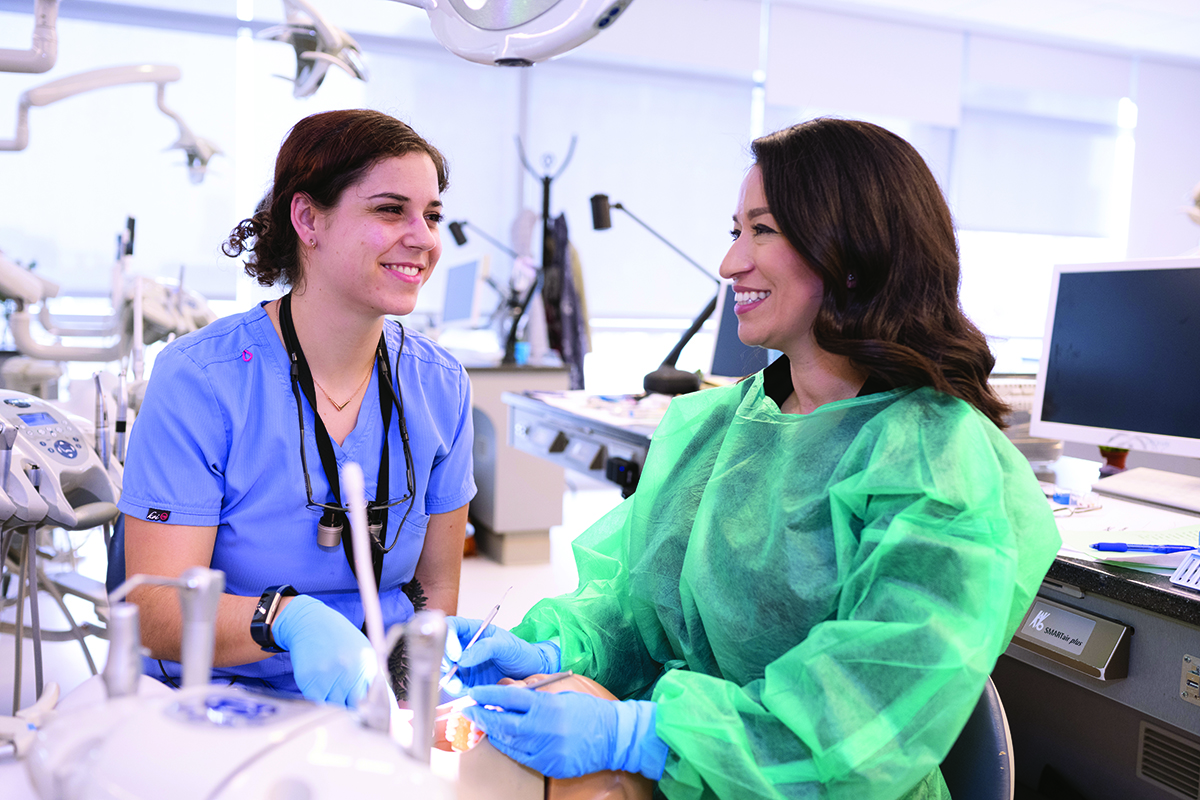
Maggie Rodriguez, RDAEF instructor
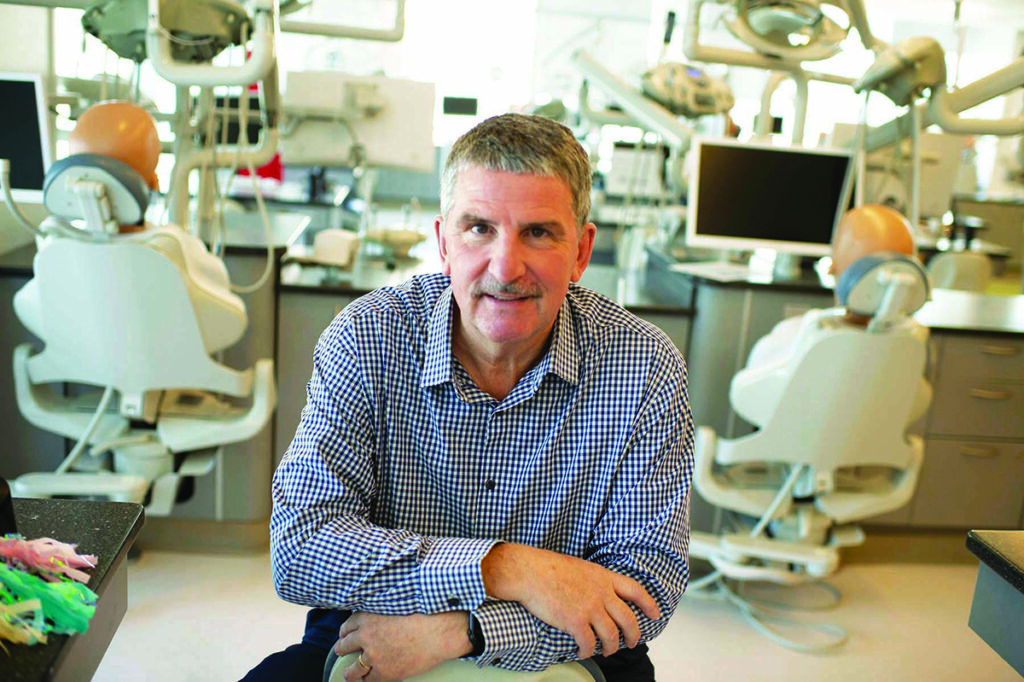
Dr. Brian Kenyon, associate professor, group practice leader and RDAEF instructor 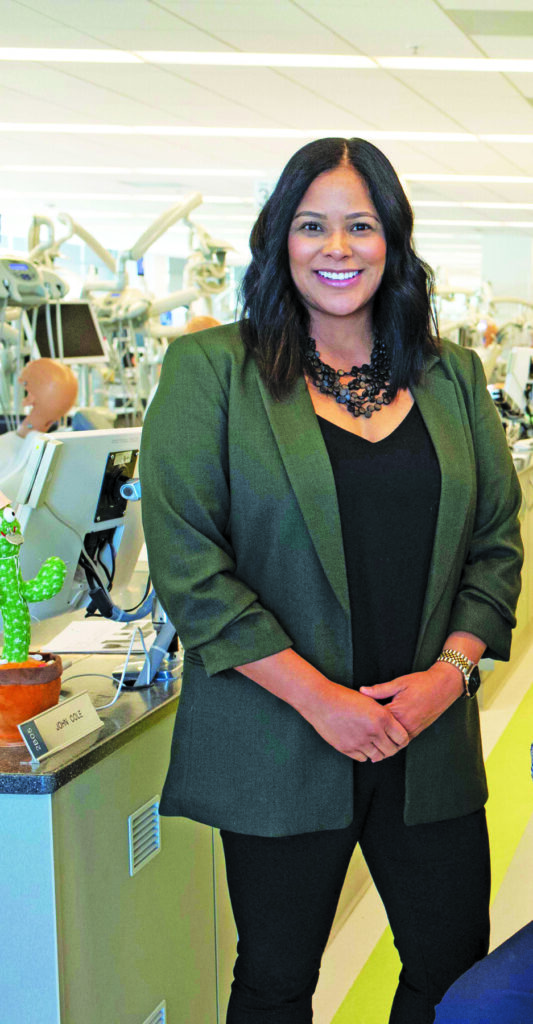
Leana Miller, RDAEF instructor 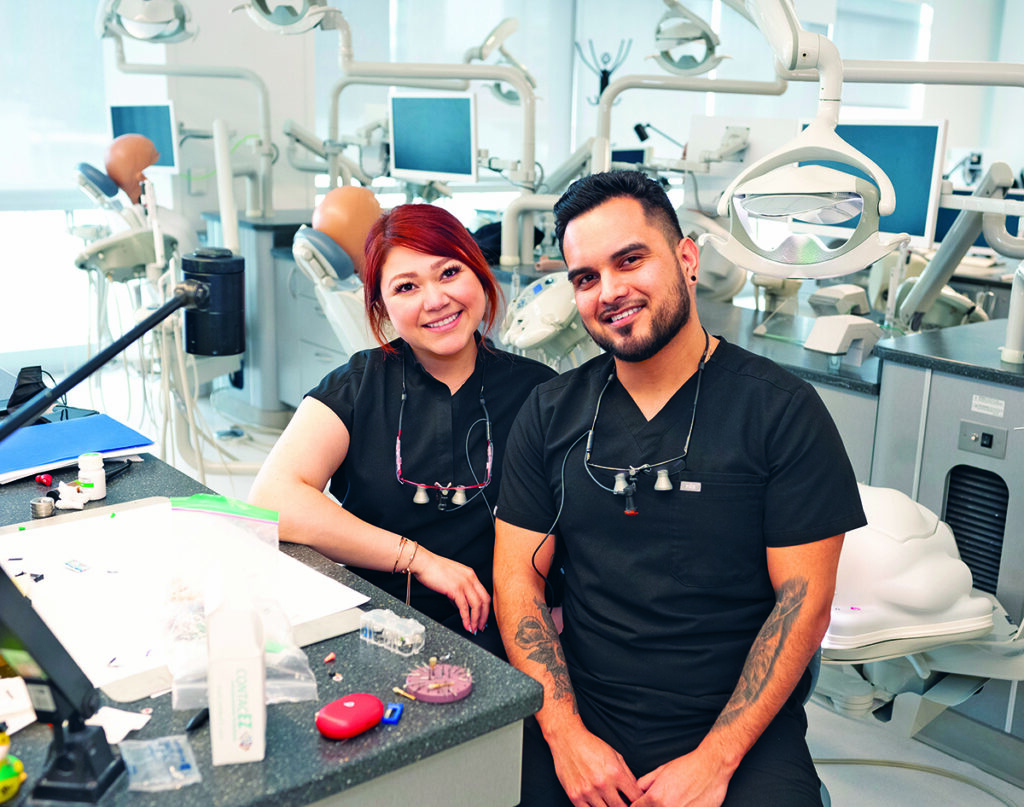
Launched in 2011, the eight-month Registered Dental Assistant in Extended Functions (RDAEF) program is offered once a year for registered dental assistants who want to deepen their skills within the practice of dentistry. The program at the Dugoni School of Dentistry—the only Dental Board of California-approved university program in Northern California—features up to 410 hours of instruction that includes in-person lectures, hands-on training in a cutting-edge simulation laboratory, live patient clinical experiences, online modules and group discussions. It satisfies the Dental Board of California’s expanded requirements for certification of existing RDAEFs with new, extended functions.
“RDAEF students are taught the same high-quality, evidence-based dentistry that our DDS students are taught, although it’s in a much shorter period of time,” said Dr. Brian Kenyon, associate professor, group practice leader and RDAEF instructor. “We have a modern, spacious facility and an enormous sim lab. And our RDAEF students are able to take advantage of and have access to both of those aspects of our school.”
Leana Miller graduated from the RDAEF program in 2011 before pursuing her bachelor’s degree in educational studies from Arizona State University. Currently, she is an RDAEF instructor at the Dugoni School of Dentistry, serves as an adjunct dental assisting instructor at Monterey Peninsula College and works on call as an RDAEF in Monterey and Santa Clara counties. “The Dugoni School’s RDAEF program integrated core academic knowledge with technical and occupational training and hand skills that provided me with a pathway to postsecondary education,” she says.
“The faculty who teach within our RDAEF program are extremely committed. They also spend countless hours to make the program better every year.”
In the 12 years since she was a student here, Miller has seen several big changes to the program. First, since the move to its new Fifth Street campus, the dental school features a state-of-the-art simulation lab to provide students with real-world training experiences. Improved technology has also brought the use of Canvas, web-based software that supports online teaching and learning. Students can view modules, lectures, presentations, grades and attendance, communicate with instructors and peers and even submit their completed skill sheets online.
Another big change: “As students, we used to have to bring six patients to the dental school for Module 3–cord packing and impressions,” Miller says. “Now, students are required to bring three patients to the school but can complete the other three live-patient treatments in their dental offices.” This was an adaptation necessitated by the pandemic, when it was increasingly difficult for students to bring their dentists and patients into the school, but the convenient practice has remained.
Miller is proud of her involvement with the RDAEF program, and the ability to constantly improve the quality of the instruction and student experience. “I’m so thankful to have a team who trusts me,” she says. “It allows me to improve ‘the wheel’—and my wheels are always turning!”
“The faculty who teach within our RDAEF program are extremely committed. They also spend countless hours to make the program better every year,” Kenyon adds.
Fong says that, especially since COVID, there’s an enormous gap in access to dental care and such allied professionals are needed more than ever—especially in underserved areas. “I think that’s what I’m most proud of,” she says. “Here at the Dugoni School, across all of our programs, we place a strong emphasis on giving back. And our students are very committed to serving their communities.”
To learn more about the Dugoni School of Dentistry’s programs for allied dental professionals, visit dental.pacific.edu.
Kirsten Mickelwait is a San Francisco-based copywriter, content provider and professional storyteller.
